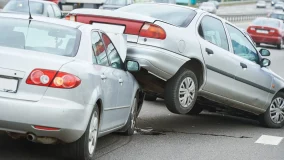What To Look For When Purchasing a Vehicle
Buying a vehicle is a big decision and can be overwhelming if you aren’t sure what to look for. A vehicle is more than just a lifeline that connects you from place to place, it’s also a lengthy investment that will be with you until you pay it off. As you begin shopping for your next vehicle, there are a few factors to keep in mind.
Cost of Insurance
Depending on your state, different coverages may be required. Even if you live in a state that only requires liability insurance, it is highly recommended that you purchase the necessary coverage to ensure that you and your vehicle are protected. Make, model, and age of a car can all affect how high or low your insurance premium is and factors such as whether your vehicle is imported, exported, new, or pre-owned can have an impact on your rates. The actual cost of insurance will vary from one vehicle to the next but maintaining contact with your insurance provider throughout the purchase process will ensure that you don’t purchase a vehicle that you can’t afford to insure.
Safety and Reliability Ratings
One of the most important factors to consider when shopping for a new or used vehicle is the vehicle’s safety and reliability ratings. You want to make sure that the car you’re buying can protect you and your passengers. There are a variety of online tools that can be used to get a sense of what the safety and reliability ratings are for any vehicle that you’re considering. You should consider safety features such as airbags, a rearview camera, brake assist, blind spot indicators, and lane departure warnings, all of which make it easier to drive.
Resale Value
While getting a new vehicle is exciting, you will most likely sell it at some point down the road. Whether you drive it for five years or ten years, you should always consider how steeply the value is going to decline. Certain makes of vehicles are considered more reliable in the long-run than others and because of this, they hold their value longer. Even though depreciating value is inevitable, purchasing a vehicle that will have a higher resale value will be a better investment when it comes to starting the vehicle purchase process over again.
Costs of Maintenance
Once you’ve purchased a car, you will want to keep it in good condition to ensure it lasts for years to come. While all car buyers will have maintenance costs, some types of cars come with more maintenance expenses than others. For example, foreign cars will always be more expensive to maintain than their domestic counterparts because repair parts have to be imported. Although a vehicle’s purchasing price might seem reasonable, the cost of its maintenance should always be considered. Investing in an extended warranty offered by the dealership or researching cars whose manufacturers put special maintenance deals on them for the first couple of years are other strategic ways to reduce future service and maintenance costs.
Additional Features
Finally, you will want your car to be enjoyable to drive. Different makes, models, and types of cars exist because not everyone’s preferences are the same. Before heading to a dealership, brainstorm a list of features that you are looking for in a future vehicle. Segment the list into features that are non-negotiable, ones you would like to avoid, and things that you would like to have, but are not a deal breaker. We spend so much time driving and waiting in traffic that our preferences and personal comfort cannot be completely forgone by price. Keep these tips and factors in mind the next time you go car shopping so that you find the best deal and vehicle for you.




